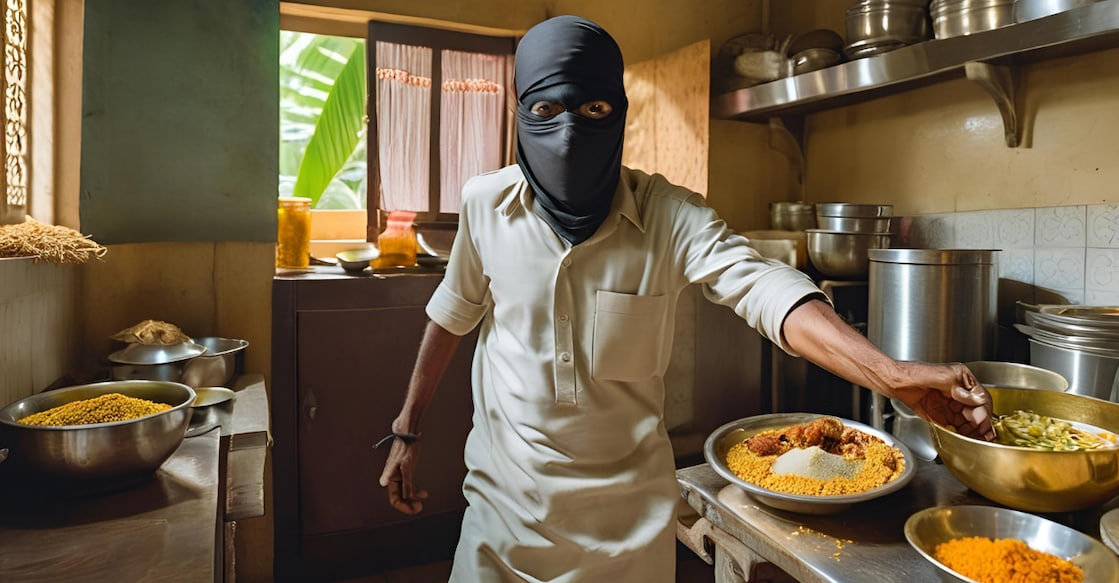Forest hamlets in Pathanamthitta have a problem; mystery thief who makes away with groceries

Mail This Article
Along the forest fringes of the Goodrical Range in Pathanamthitta lurks a burglar with odd choices. It's not gold or cash, the suspect is after, but groceries, cooked meals, curry powders, clothes and even refrigerated food. The target is mostly isolated houses bordering the lush forests occupied by daily wagers. The thief raids the house in broad daylight, pilfers food and groceries and decamps without a trace. Fingerprint experts scanning the scene for the minutest hints often return without any clue.
After a brief lull, the incidents have resurfaced with at least four cases reported in May 2025 alone. The affected villages — Angamuzhi, Valupara, Kochukoyikkal, Gurunathanmannu, all lying close to forest areas — share a common pattern: temporarily closed houses or families leave their homes locked in the morning to go to work, only to return in the evening and discover their homes ransacked.
The burglars typically gain entry by breaking windows — often slicing through wooden frames with sickles or twisting iron grills. Once inside, they head straight for the kitchen, looting everything from cooked food to items stored in the fridge. Sometimes, even clothes are taken, possibly to wrap the stolen goods.

“These incidents are reported at intervals. The targets are mainly houses left vacant during the day — mostly belonging to working-class families,” said Joby, a member of the local panchayat. “We’ve recorded at least 25 such burglaries so far. The houses have no advanced security systems.”
He recalled a recent case involving Kavithadathil Lilly’s house, which was broken into while she was visiting her son in Mumbai. Her brother discovered the theft when he visited the house one evening.
Thefts of this nature are not new to the area. Initially, the culprits targeted tree huts used by farmers to guard their crops from wild animals during the night. These huts often had food supplies, which were stolen during the day while the farmers were away. “People didn’t take those thefts seriously at first,” Joby explained. “But once the burglars began breaking into actual houses, residents became more vigilant and started informing the police.”
One such case occurred in June 2024 at the home of Jinu Mangalam, a local taxi driver. “That day, my mother was at my sister’s house. When I returned home from work, I noticed a broken window and realised the kitchen had been cleaned,” Jinu said. “They took cooked fish curry, cleaned raw fish, chopped jackfruit meant for steaming, and even boiled rice from the fridge. A dhoti of mine was missing too.”
Initially thinking he had left the back door unlocked, Jinu later realised it had been used as an escape route. “When I called the police, they were already attending to a similar case nearby. Later, I found a few items from my fridge — like a milk bottle and dates — discarded not far from my house,” he said. Fingerprint analysts examined the scene, but no fingerprints other than Jinu’s were found. Blood traces were also discovered in the kitchen, but efforts to trace the culprit yielded no results.

In many of these cases, suspicion points to a man named Sughu, who was previously arrested in 2016 for a similar theft in nearby Thannithodu. “Sughu is probably in his sixties now. We apprehended him deep inside the forest. He hails from Kodumudi in Chittar, though his family still lives there,” said an official from Chittar police station. “He has lived in the forest since his youth, often staying in rocky caves and moving frequently to avoid wild animals. He isn’t married and has no close family ties.”
“Back then, Sughu was known for stealing groceries, clothes, and coffee powder. He also used to steal sickles, which he used not only to clear forest paths but also to break into other houses. He was released after complainants withdrew their cases, and hasn’t been seen since,” the cop added. Despite multiple search operations in the forest, police have been unable to locate him again.
Forest and police officials have since ramped up patrolling efforts in these areas. Another theory being considered is the involvement of forest-dwelling hunter men who, unable to buy provisions openly, might be stealing daily essentials instead. “In our village, everyone knows each other. If a stranger tries to buy large quantities of food or essentials, local shopkeepers would immediately notify the authorities,” said Joby, pointing out the possibility of wild hunters. Rumours are also afloat about possible Maoist involvement, which police have not confirmed.


